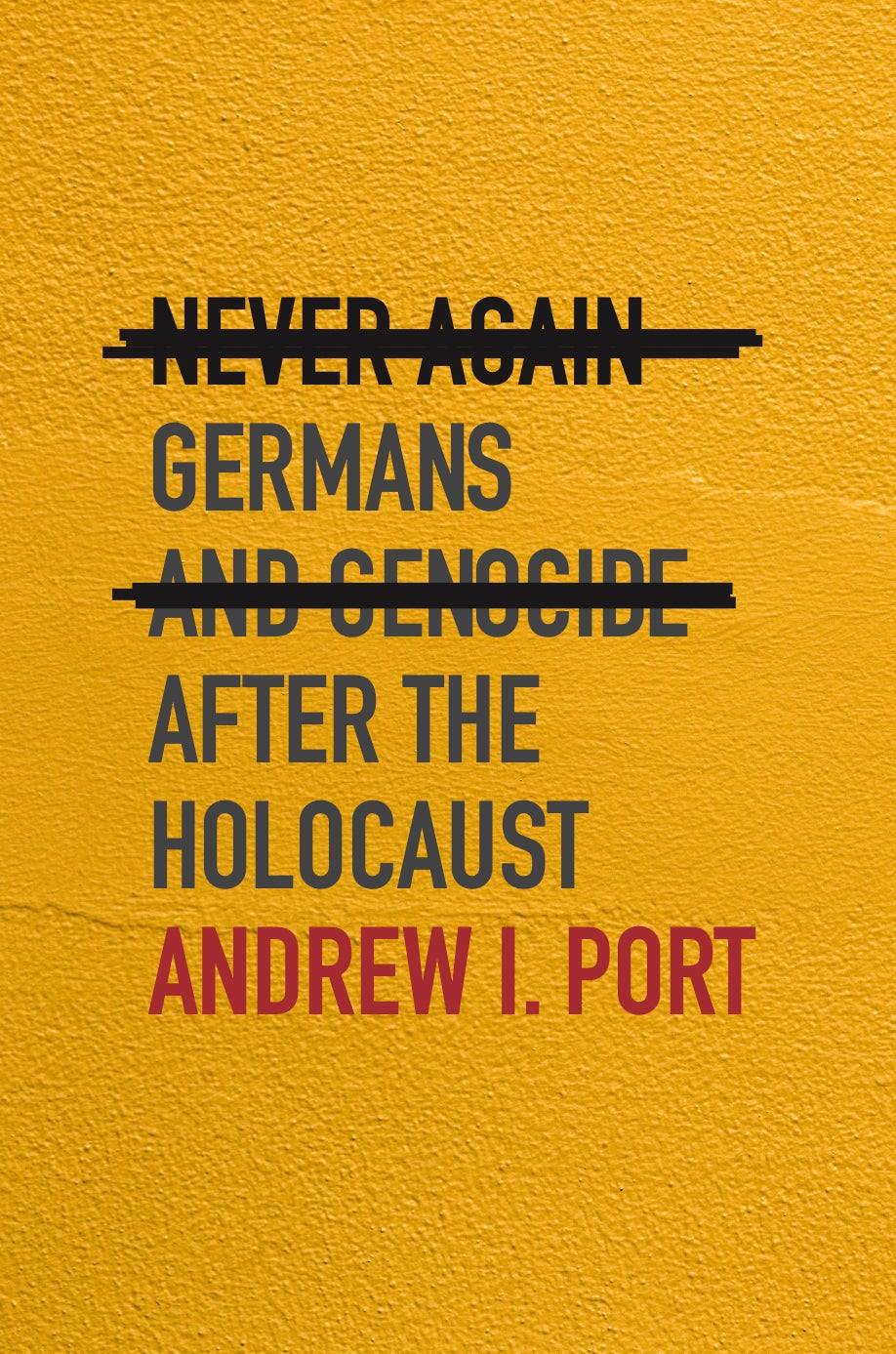Never Again: Germans and Genocide After the Holocaust
February 8, 2024 at 4:00 PM Pacific Time
Doheny Memorial Library, Room 240
(Join us in person or online on Zoom)
A public lecture by Andrew I. Port (Professor of History, Wayne State University)
Co-organized by the USC Dornsife Center for Advanced Genocide Research and the USC Dornsife Max Kade Institute for Austrian-German-Swiss Studies
Germans remember the Nazi past so that it may never happen again. But how has the abstract vow to remember translated into concrete action to prevent new genocides abroad?
As reports of mass killings in Bosnia spread in the middle of 1995, Germans faced a dilemma. Should the Federal Republic deploy its military to the Balkans to prevent a genocide, or would departing from postwar Germany’s pacifist tradition open the door to renewed militarism? In short, when Germans said “never again,” did they mean “never again Auschwitz” or “never again war”?
Looking beyond solemn statements and well-meant monuments, Andrew I. Port examines how the Nazi past shaped German responses to the genocides in Cambodia, Bosnia, and Rwanda – and further, how these foreign atrocities recast Germans’ understanding of their own horrific history. In the late 1970s, the reign of the Khmer Rouge received relatively little attention from a firmly antiwar public that was just “discovering” the Holocaust. By the 1990s, the genocide of the Jews was squarely at the center of German identity, a tectonic shift that inspired greater involvement in Bosnia and, to a lesser extent, Rwanda. Germany’s increased willingness to use force in defense of others reflected the enthusiastic embrace of human rights by public officials and ordinary citizens. At the same time, conservatives welcomed the opportunity for a more active international role involving military might—to the chagrin of pacifists and progressives at home.
Making the lessons, limits, and liabilities of politics driven by memories of a troubled history harrowingly clear, Never Again is a story with deep resonance for any country confronting a dark past.
Andrew I. Port is Professor of History at Wayne State University in Detroit. He is the author of Never Again: Germans and Genocide after the Holocaust, Conflict and Stability in the German Democratic Republic, and Becoming East German: Structures and Sensibilities after Hitler. Professor Port is the recipient of the DAAD Prize for Distinguished Scholarship in German and European Studies, and the former editor-in-chief of the flagship journal Central European History.
Discover more about the Center’s events here
Sign up for the Center’s newsletter to be notified about upcoming events
Visit the Center’s YouTube channel to explore our video library of events (and subscribe!)
